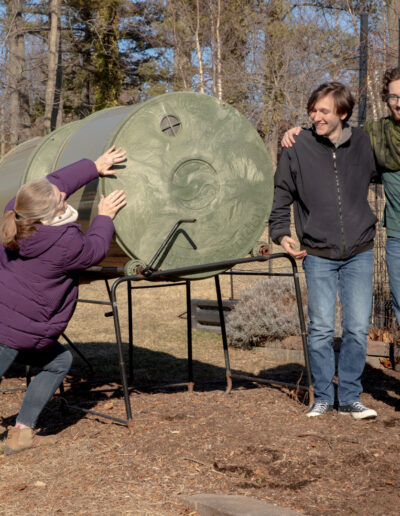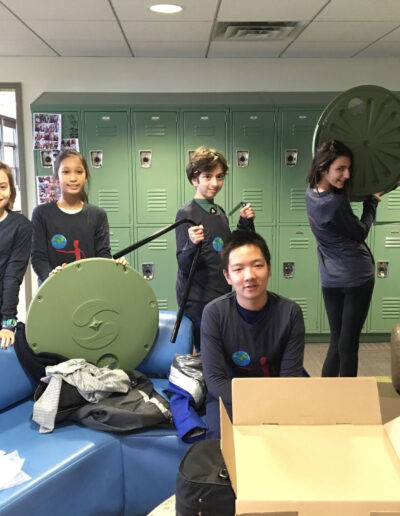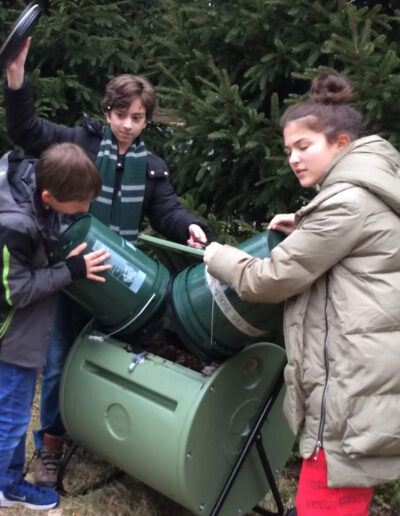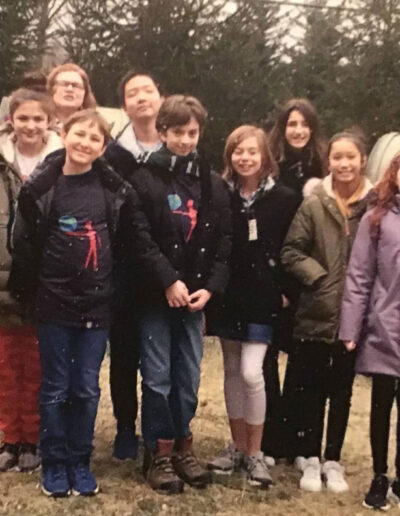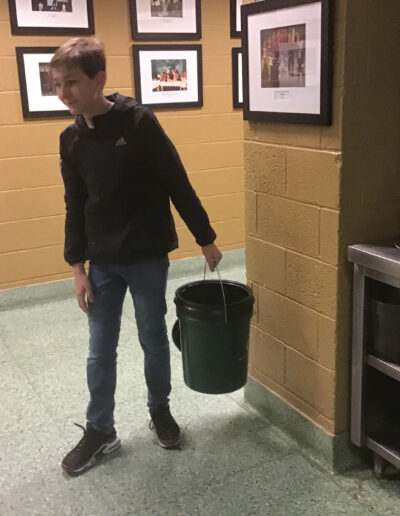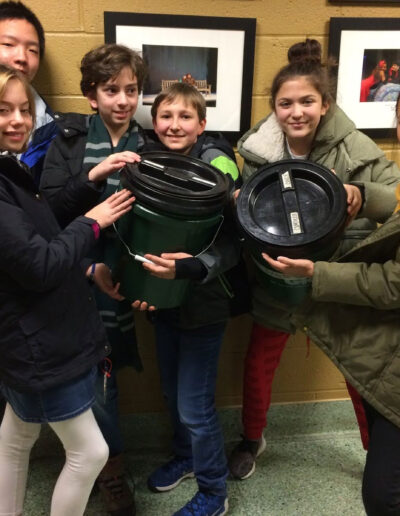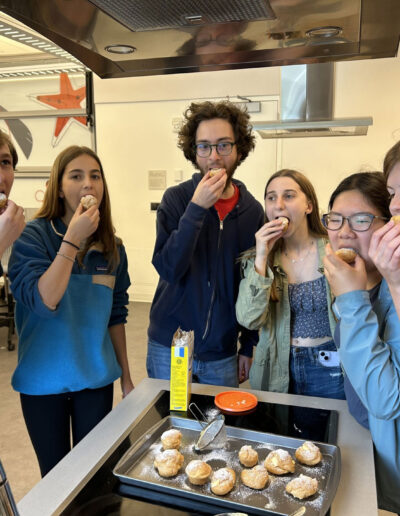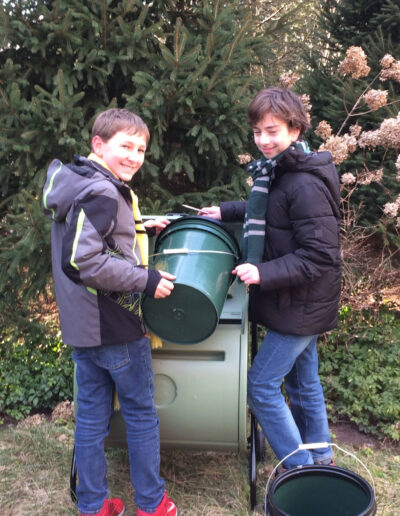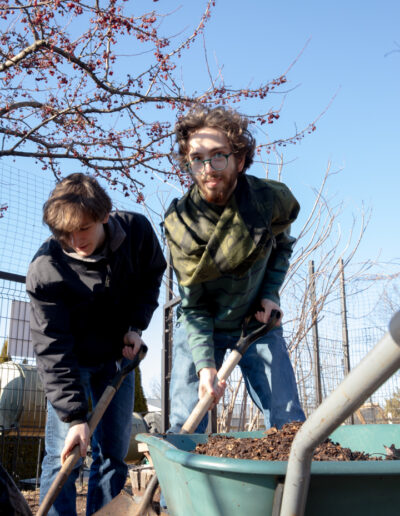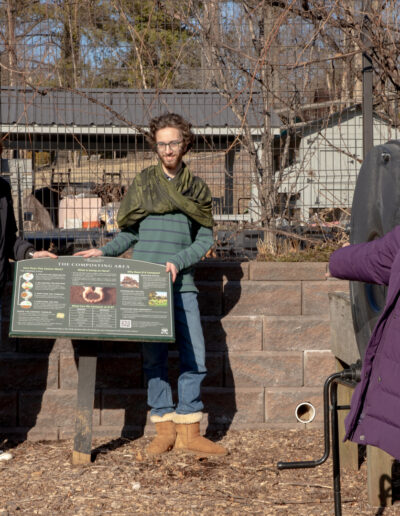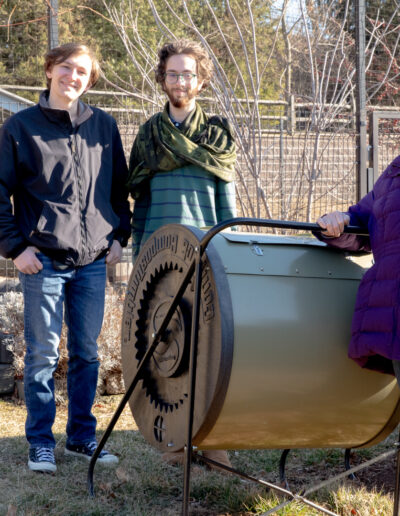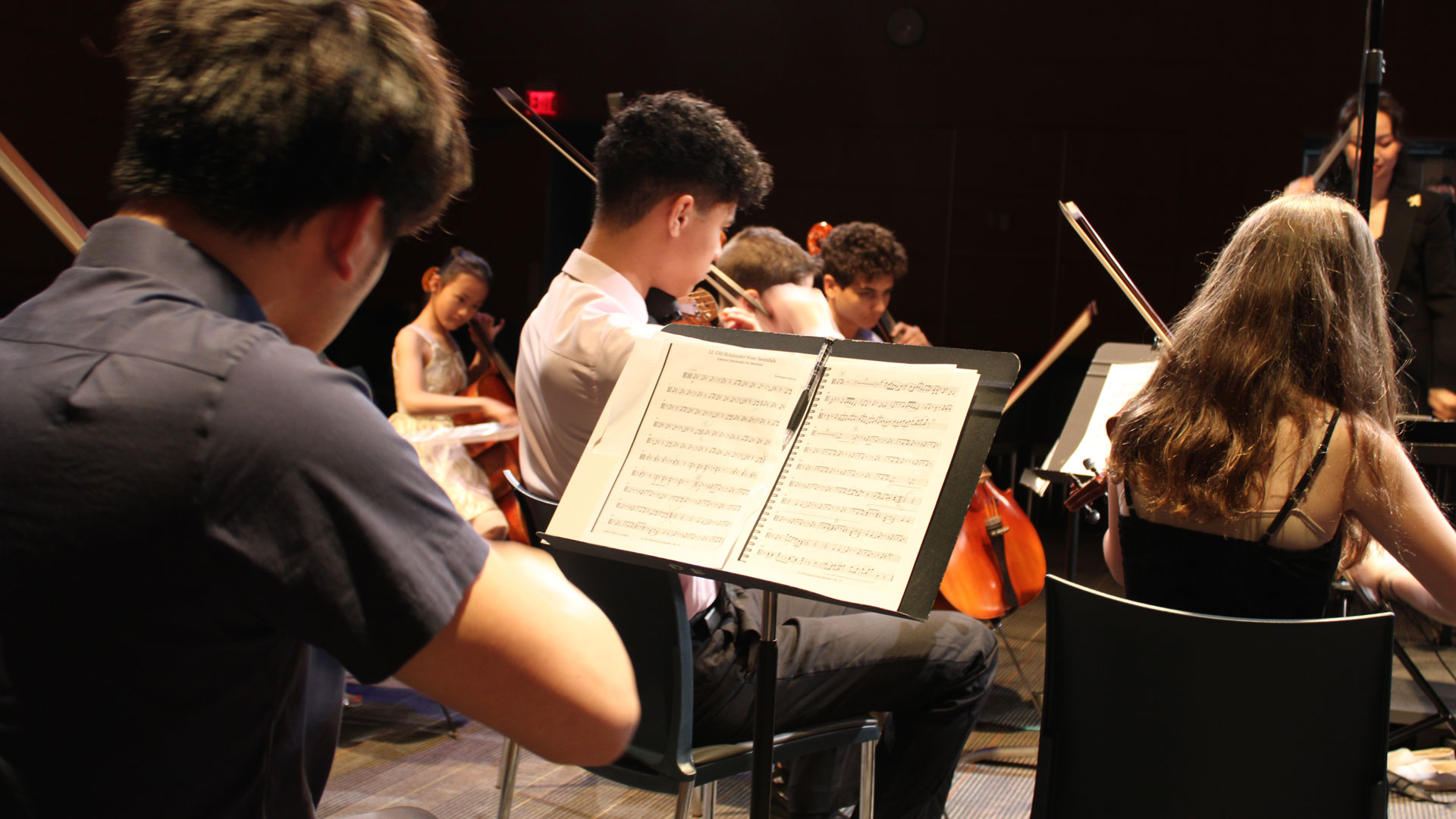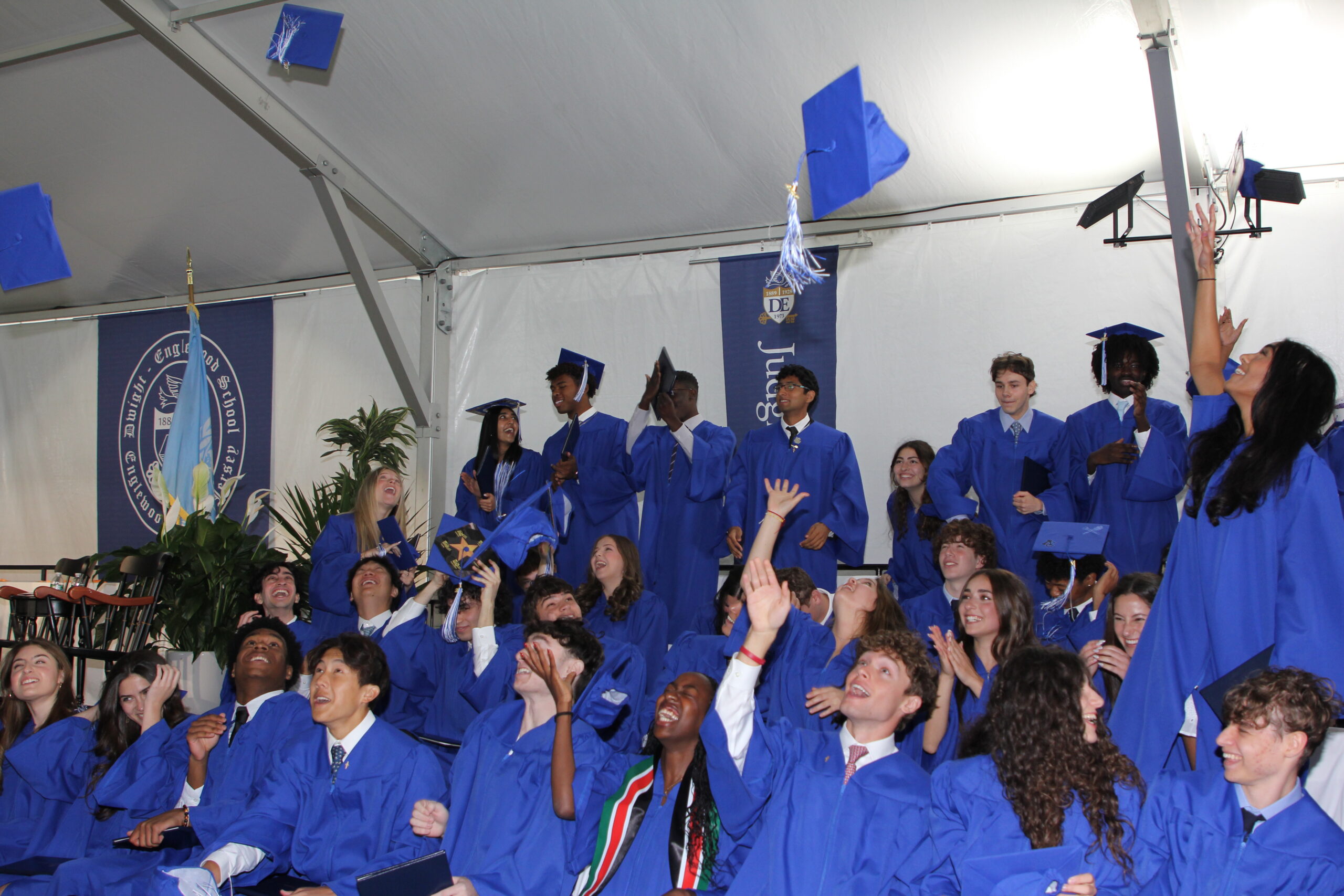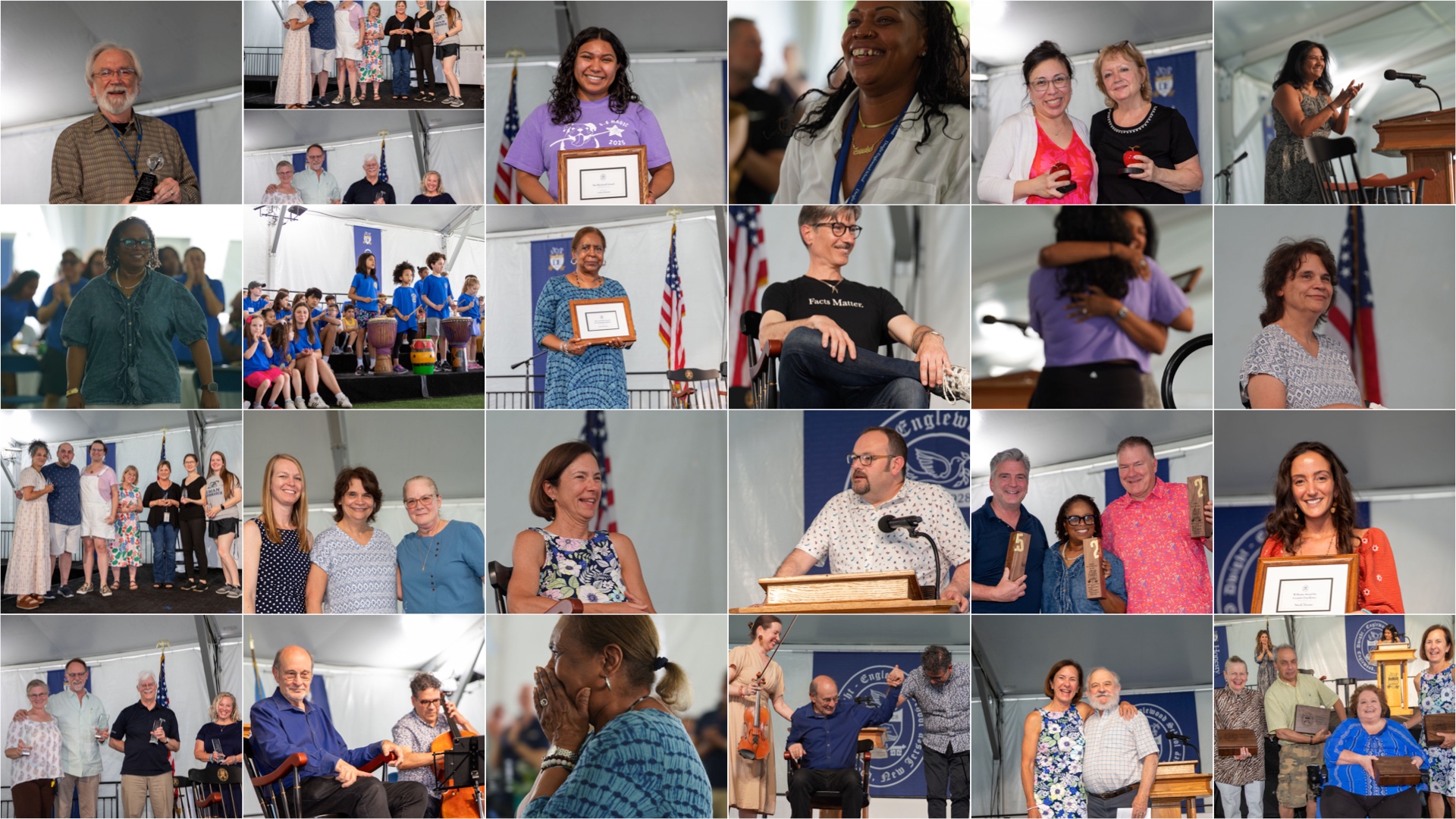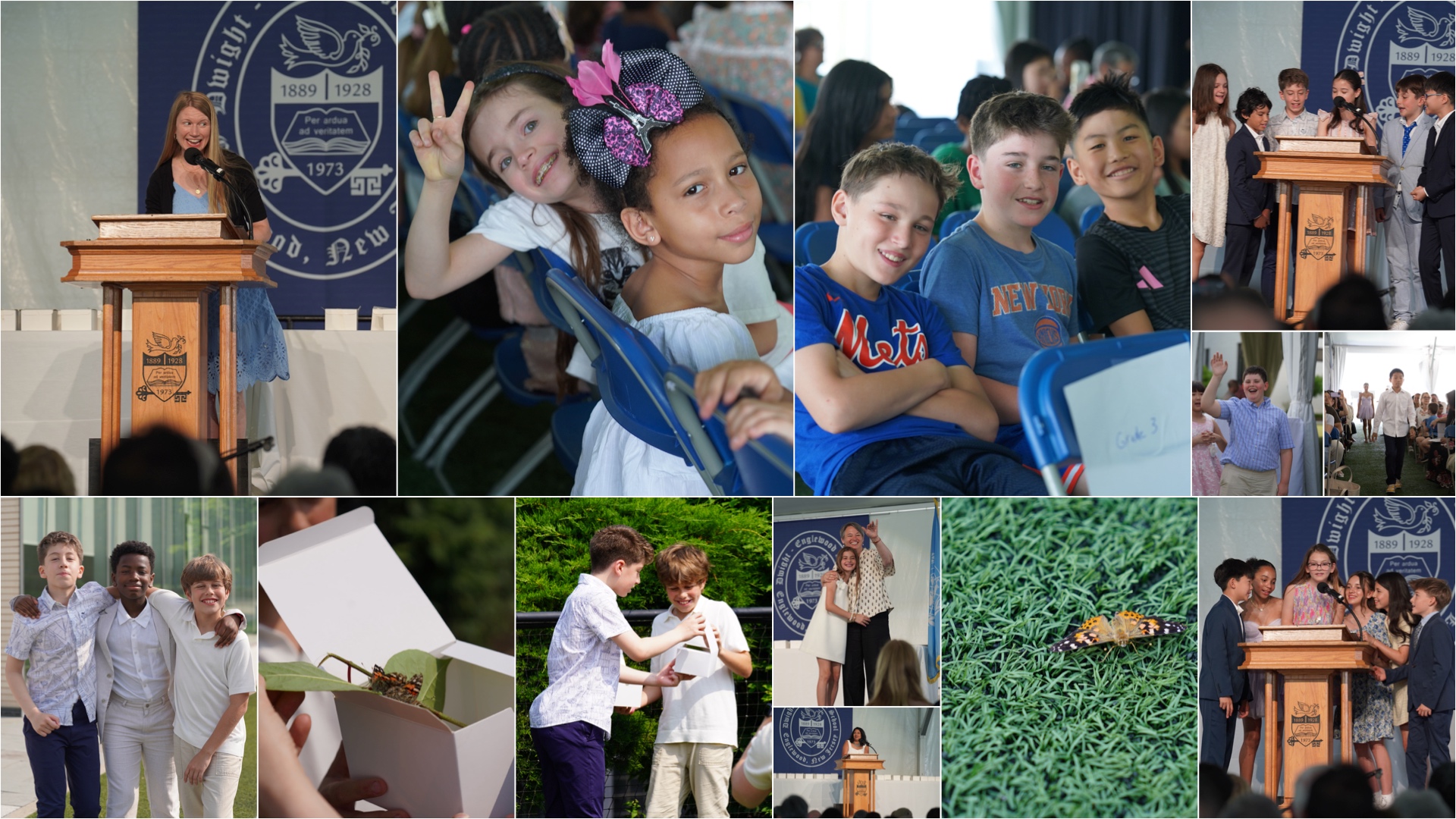As a “community of learners,” we at D-E stand by our mission “to meet the challenges of a changing world and make it better”; therefore, we proudly spotlight students whose actions consistently exemplify this objective and make a lasting impact. Two of these changemakers are Upper School seniors Leonard “Len” Glozman ’25 and Benjamin “Ben” Gmyrek ’25.
Tasha Urbanowski, Garden Club Faculty Advisor and Grade 6 Dean, says the original “compost crew” Len and Ben are “the students who made a substantial change to institutional behavior and leave a legacy looking toward sustainability—the D-E Middle School (MS) and Upper School (US) Compost Project.”
Ms. Urbanowski adds: “Through persistent, collaborative effort with administration, teachers, staff, parents and other students, they introduced community composting, grew the program steadily, navigated obstacles, completed a compost audit, won a Greenbaum Grant, and led the launch of multiple related projects like the US Garden Club, the US CFA outreach, the D-E Green website revamp, and the PA Garden Work Party.”
Here, Len tells us what inspired these community projects at D-E and how he hopes to continue this work after he graduates.
Q: When did you first get involved with environmental programs at D-E?
Len: In fourth grade, I joined the Lower School Planeteers, a sort of environmental club for young kids. As our first project, I recall replacing synthetic wipes in the LS cafeteria with natural disinfectant spray and reusable towels. When we were in fifth grade, Ben and I did a presentation at the Flat Rock Brook Nature Center about the effects of plastic pollution.
I became more involved after entering Middle School, asking Ms. Urbanowski to start an Environmental Club. It was through this MS Environmental Club that I first became involved with the compost project. That year, with guidance from Ms. Urbanowski, I helped build a new compost tumbler, the vessel that holds compost as it decomposes. Although we did work on other things, like running a series of events around Earth Day in 8th grade, compost was the project we spent the most time on.
Moving to the Upper School, I wanted to continue with my earlier work, so I applied to create a new Garden Club which would, among other things, maintain the compost system. My proposed co-president was Ben, with whom I had a long-standing friendship and who had a similar vision.
Q: Why was this important to you?
Len: Global problems like climate change can seem impossibly large to tackle. Yet, through on-campus initiatives I am able to have a substantial impact. The compost system, for instance, currently saves 1,000 pounds of food waste per month from the landfill. Instead of releasing methane and contributing to the global climate crisis, it decomposes aerobically to produce high-quality fertilizer for our garden.
Q: Tell us about the Greenbaum Grant. What were the funds used toward?
Len: In the spring of my sophomore year, the Garden Club applied for the Greenbaum Grant in order to finance improvements to a new compost arena. Specifically, we used the money to fund new wheelbarrows, more buckets for the kitchen staff to use for sending us food scraps, and new compost tumblers.
Q: What other sustainability projects have you led at D-E?
Len: In the Garden Club, we took responsibility for managing the three annual Garden Work Parties, which was something Ms. Urbanowski had been organizing for years on her own. In addition, I’ve organized three field trips to the Center for Food Action Garden to allow our members to have a positive impact on their local community through gardening—all produce grown in that garden goes to families facing food insecurity. I have also expanded the Honey Harvest to an all-school event. Lastly, through our weekly Garden Club meetings, we hope to teach our members about sustainable agriculture and land stewardship, while also dedicating time to simply enjoy our beautiful garden.
Q: How will you continue this sustainability work after you graduate?
Len: I will be attending Yale University next fall, where I plan to major in Environmental Science. At Yale, I intend to continue my hands-on work through the Yale Farm, which is a center for learning and experimentation in the field of sustainable agriculture.
Below, Ben gives us his perspective on environmental programs at D-E and beyond.
Q: Tell us why the Garden Club work is important to you.
Ben: The US Garden Club started out as just a group of friends going up to the garden during lunch, but it has since blossomed into the most enjoyable part of my Fridays. Now our focus is maintaining this system that we have all worked so hard for. We are trying our best to encourage co-curricular engagement in the garden. It is a teaching space that teachers should take advantage of. We have managed to get a few science classes up there, but we are always looking for more people to enjoy it!
Q: What do you want the D-E community to know about the MS/US Compost Project?
Ben: Some amount of waste is inevitable. We cannot compost everything in our system; however, we can take a lot of the food waste generated here at D-E and repurpose it. It is a literal representation of ‘one’s trash is another’s treasure.’ Composting is also closer to the way nature intended for us to deal with waste. Decomposition is a natural process that does far less harm to the environment. At one point we collected almost all compostable food scraps from the kitchen.
Q: In what ways did you raise awareness for these projects?
Ben: Len and I have done a lot. In Middle School, we tried to run several competitions to raise awareness. We offered a cookie from the Coop to students who would take the compost bucket around during lunch and help students compost their food waste. We organized a whole week of activities for Earth Day in 2021. Although only half of our crazy ideas ever came to fruition, it was a lot of fun.
How will you continue this work after graduation?
Ben: Gardening is about the community, and although I am disappointed to leave the gardening community at D-E, I am excited to meet new people and enjoy the seemingly endless expanse of untouched nature the area in Upstate New York has to offer.

